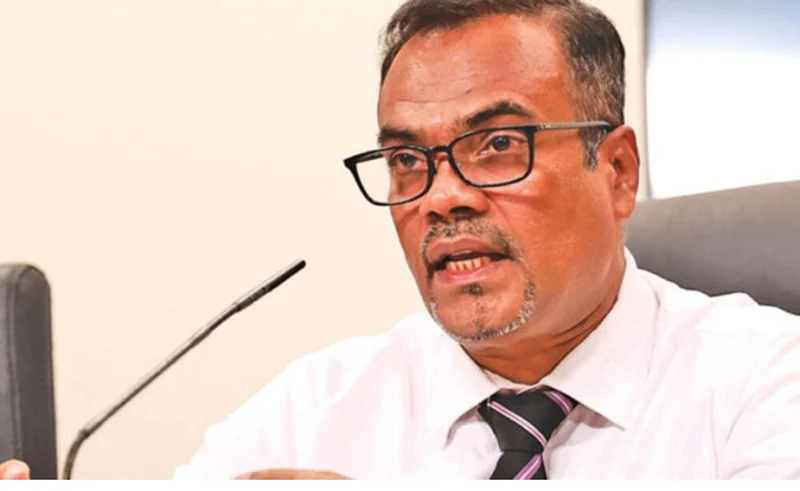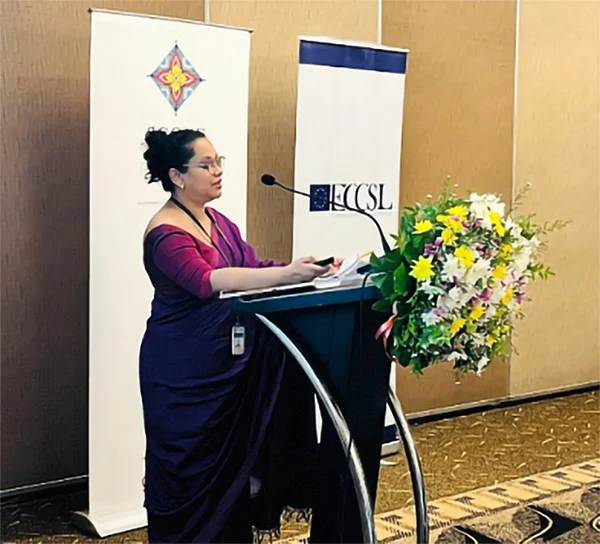Business
Sri Lanka Tourism supported by EU to develop wellness tourism

Authentic Ayurvedic Medicine
Supporting the speedy revival of the tourism industry in Sri Lanka, the European Union (EU) Delegation to Sri Lanka, has allocated funds to help strengthen the local wellness tourism capacity for Sri Lanka to transform into an attractive destination for wellness tourism. This will be carried out under the guidance of Sri Lanka Tourism. The resulting ‘Sri Lanka Wellness Tourism Stakeholder Project’ will be officially launched on 15 February 2022.
The launch will involve key stakeholders of the project where details of the project will be shared, followed by a group discussion on wellness tourism capacity development. A follow up meeting will be held on the 25th of February to share findings and recommendations from all stakeholder meetings, site meetings and discussions with wellness tourism resorts, hotels and training providers. A presentation of the findings determined through surveys carried out amongst wellness tourism organizations and training providers will also be presented this month.
The EU Delegation has contracted IBF International Consulting to undertake a technical assistance assignment to develop short term course curricula for Ayurveda therapists and wellness facility management in Sri Lanka in order to provide an authentic experience to tourists to grow the wellness tourism component for the country.
 The Chairperson of Sri Lanka Tourism, Kimarli Fernando commented, “Wellness and nature are high on the priority list for travelers presently and Sri Lanka has much to offer on both counts. Considering the lush greenery, nature, Ayurveda, yoga, spirituality and culture in Sri Lanka, it is one of the top wellness destinations in the world and we are grateful to the EU Delegation in Sri Lanka for recognizing and investing in building further capacity for the country to promote this niche tourism. This partnership will help strengthen Sri Lanka’s wellness tourism product.”
The Chairperson of Sri Lanka Tourism, Kimarli Fernando commented, “Wellness and nature are high on the priority list for travelers presently and Sri Lanka has much to offer on both counts. Considering the lush greenery, nature, Ayurveda, yoga, spirituality and culture in Sri Lanka, it is one of the top wellness destinations in the world and we are grateful to the EU Delegation in Sri Lanka for recognizing and investing in building further capacity for the country to promote this niche tourism. This partnership will help strengthen Sri Lanka’s wellness tourism product.”
The project will also consist of a ‘train the trainer’ and a supervised pilot roll-out course. Paul Penfold (Project Team Leader) will be in Sri Lanka for a 2-week mission to meet stakeholders and assess needs together with Dr Attanayake (National Expert) from 14 – 26 February.
Paul Penfold, MEd, is an experienced development consultant specializing in tourism strategy, HRD, educational technology, curriculum development, programme design and quality management. He has lived and worked in Asia (including Sri Lanka) for more than 25 years and has also taught hospitality/tourism in universities in Hong Kong, Myanmar, China and Vietnam.
Dr. Pushpika Attanayake is an Ayurvedic consultant, researcher, and a wellness expert with over 15 years of experience in Sri Lanka and abroad. Her areas of expertise extend to yoga, naturopathy, and counselling. She is a visiting lecturer in Ayurveda and Wellness Tourism at the University of Colombo, and has worked as an Ayurvedic Consultant/Spa Manager for leading hotels, including the Fortress Resort and Spa and Anantara Kalutara Resort in Sri Lanka, as well as the Royal Ayurveda, in Dubai Healthcare City. She has also served in a stint at the Sri Lanka Ayurvedic Drug Corporation.
With the wellness traveler generating at least five times more earnings than the standard tourist, Sri Lanka Tourism is strategically working with key stakeholders to position the destination to cater to the demands of this high yielding segment. With the assistance of external experts, the Authorities are focusing on product and infrastructure development, training and guidance to the SME sector and the larger industry, targeted marketing and promoting investor opportunities.
With its Ayurveda and yoga traditions, rich heritage and culture, authentic and distinctive cuisine, warm and hospitable people, abundant flora and fauna and a multitude of water-based activities the island is ideally positioned to welcome the wellness traveler. Sri Lanka will have to compete with regional wellness destinations such as Kerala and Bali, destinations that have been focusing on health and treatment-based experiences for many years. The island can however elevate its offering above health to holistic wellness enabling the differentiation of product to appeal to the various segments of travelers within the sphere of Wellness Tourism.
Business
President AKD writes to President Trump over trade deficit concerns

In a bid to address mounting trade tensions, the Sri Lankan government has intensified efforts to reduce its significant trade deficit with the United States, Deputy Minister of Economic Development Dr. Anil Jayantha Fernando announced in parliament yesterday. He added that President Anura Kumara Dissanayake has despatched a formal letter to President Trump urging, among other things, a re-assessment of the recent enhanced tariff regime imposed on Sri Lanka.
The move follows reciprocal tariffs imposed by U.S. President Donald Trump, which Sri Lankan authorities say significantly affect key export sectors. The Deputy Minister indicated that the White House has acknowledged receipt of the Lankan President’s letter, signaling the launching of a potential bilateral dialogue.
Responding to a question raised by New Democratic Front (NDF) MP Ravi Karunanayake, Deputy Minister Fernando revealed that 88% of Sri Lanka’s trade deficit over the past five years stemmed from U.S. trade relations with apparel, rubber products, spices, other agricultural products and precious gems constituting 85% of total exports to the U.S. These exports, he noted, already face tariffs and paratariffs, but President Trump’s recent levies were calculated based on bilateral trade imbalances – a factor that has placed Sri Lanka’s economy under heightened pressure.
“The President’s intervention underscores our commitment to protecting Sri Lankan industries and fostering equitable trade terms, Fernando stated, defending the administration’s proactive and reactive measures to mitigate the US tariffs’ impact on local businesses.
Highlighting ongoing engagement, he added that another round of high-level discussions with the Office of the U.S. Trade Representative (USTR) was scheduled overnight. These talks aim to address structural trade imbalances and explore avenues for tariff relief, particularly for Sri Lanka’s apparel sector, which employs millions nationwide.
The President’s letter marks a strategic move in Sri Lanka’s diplomatic outreach, reflecting the government’s urgency to stabilise an economy still recovering from recent crises while in the middle of an IMF programme.
Sri Lankan industry leaders have cautiously welcomed the government’s efforts but emphasise the need for swift, tangible outcomes.
At present, all eyes remain on Washington’s response to President Dissanayake’s appeal – a potential turning point for Sri Lanka’s trade future, observers noted.
By Sanath Nanayakkare
Business
Inclusive and sustainable apparel for SDGs

The European Chamber of Commerce of Sri Lanka (ECCSL), in collaboration with the Strengthening Social Cohesion and Peace in Sri Lanka (SCOPE) programme, recently hosted its third industry-focused event, bringing together apparel-sector stakeholders to exchange experiences and practical insights on embedding inclusivity and sustainability into business operations.
Building on the success of ECCSL’s earlier events focused on tourism and food and agriculture, this apparel-focused gathering convened government representatives, industry leaders, business practitioners and the academia to discuss practical strategies for embedding inclusivity and sustainability into business operations.
While many businesses already recognize the importance of these principles, the event emphasized practical implementation, shifting the conversation from the “why” to the “how” of inclusive and sustainable practices.
Chamindry Saparamadu, Director General of the Sustainable Development Council of Sri Lanka, discussed how the Government of Sri Lanka is supporting businesses to create social and environmental impact through its Inclusive and Sustainable Business (ISB) Strategy. Ms. Saparamadu outlined how this strategy aims to create a resilient, equitable, and sustainable economy by building an ecosystem in which inclusive and sustainable businesses can thrive, driving transformative change across industries.
The event also featured engaging presentations from leading apparel businesses—Omega Line, Hirdaramani, and Compreli Consulting—each showcasing real-world examples of how inclusivity and sustainability can be embedded into business operations.
Omega Line, represented by Saman Jayasinghe (Chief HR Officer, Group – Administration) and Charman Dep (Assistant General Manager – Production Planning), presented its multifaceted sustainability approach, spotlighting its Vavuniya factory as a successful model for combining environmental stewardship with social impact.
Hirdaramani’s Manindri Bandaranayake (Chief Brand & Sustainability Officer for Sri Lanka, Bangladesh, Ethiopia, and Vietnam) showcased the company’s holistic sustainability framework, including its Wonders of Wellbeing (WOW) program, policies supporting differently-abled individuals, and deep community engagement.
Finally, Compreli Consulting co-founders Ramesh De Silva and Shehan Olegasageram showcased their innovative garment repair-as-a-service model—a circular, scalable solution that reduces waste and carbon emissions, while aligning with evolving global sustainability regulations.
Participants then had the opportunity to share their own knowledge in a group discussion, exchanging experiences and reflecting on the challenges and opportunities encountered in their sustainability journeys.
The event underscored the collective benefit of building Sri Lanka’s reputation as a global leader in inclusive and sustainable business. By fostering collaboration between businesses, the academic community and government stakeholders, the session aimed to accelerate broader industry adoption of these principles and contribute to Sri Lanka’s sustainable economic growth.
The discussions were facilitated by the Project Lead of ECCSL’s Inclusive Business Practices project, William Baxter.
Business
Union Assurance records Rs. 5.2 Billion PBT, fortifying its financial position by delivering best-in-class value

Union Assurance PLC, Sri Lanka’s longest-standing private Life Insurer, has recorded a strong financial performance with growth across key metrics for the year ending December 31, 2024. The Company achieved a 15% growth in gross written premium, totalling Rs. 21.6 billion driven by double-digit growth in both regular new business premiums and renewal premiums and paid Rs. 7.7 billion worth of claims and benefits to its customers during the year. In addition, for the year ending December 2024, the Company also declared an industry-leading universal life policyholder dividend rate of 12%, underscoring its continued commitment to deliver exceptional value to its customers.
Net investment income recorded a 9% year-on-year growth to reach Rs. 11.8 billion aided by an effective asset allocation strategy. The gains from the trading investment portfolio increased by 123% to reach Rs. 2.9 billion driven by the strong performance of the Colombo Stock Exchange during the latter part of the year.
Union Assurance distributed Rs. 3 billion as surplus from the policyholder fund and reported a profit after tax of Rs. 3.7 billion for 2024. The Company declared a final shareholder dividend of Rs. 5.00 per share amounting to a total payout of Rs. 2.9 billion.
A key milestone for Union Assurance in 2024 was the surpassing of Rs. 100 billion in total assets for the first time in its history, ending the year with Rs. 109.5 billion. This underscores the Company’s solid financial foundation and growth trajectory.
The Company’s assets under management grew by 15% during the year, reaching Rs. 95.6 billion driven by market valuation gains and cash generation from business operations. Furthermore, Union Assurance’s capital adequacy ratio stood at a healthy 264% at the end of 2024, well above the regulatory minimum of 120%.
-

 Business2 days ago
Business2 days agoColombo Coffee wins coveted management awards
-

 Business4 days ago
Business4 days agoDaraz Sri Lanka ushers in the New Year with 4.4 Avurudu Wasi Pro Max – Sri Lanka’s biggest online Avurudu sale
-

 Features3 days ago
Features3 days agoStarlink in the Global South
-

 Business5 days ago
Business5 days agoStrengthening SDG integration into provincial planning and development process
-

 Business4 days ago
Business4 days agoNew SL Sovereign Bonds win foreign investor confidence
-

 Sports6 days ago
Sports6 days agoTo play or not to play is Richmond’s decision
-

 Features3 days ago
Features3 days agoModi’s Sri Lanka Sojourn
-

 Sports5 days ago
Sports5 days agoNew Zealand under 85kg rugby team set for historic tour of Sri Lanka











